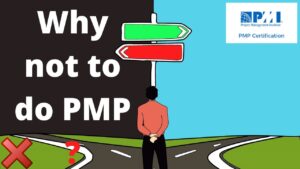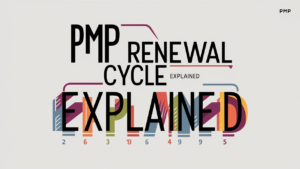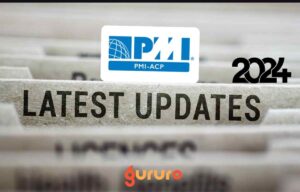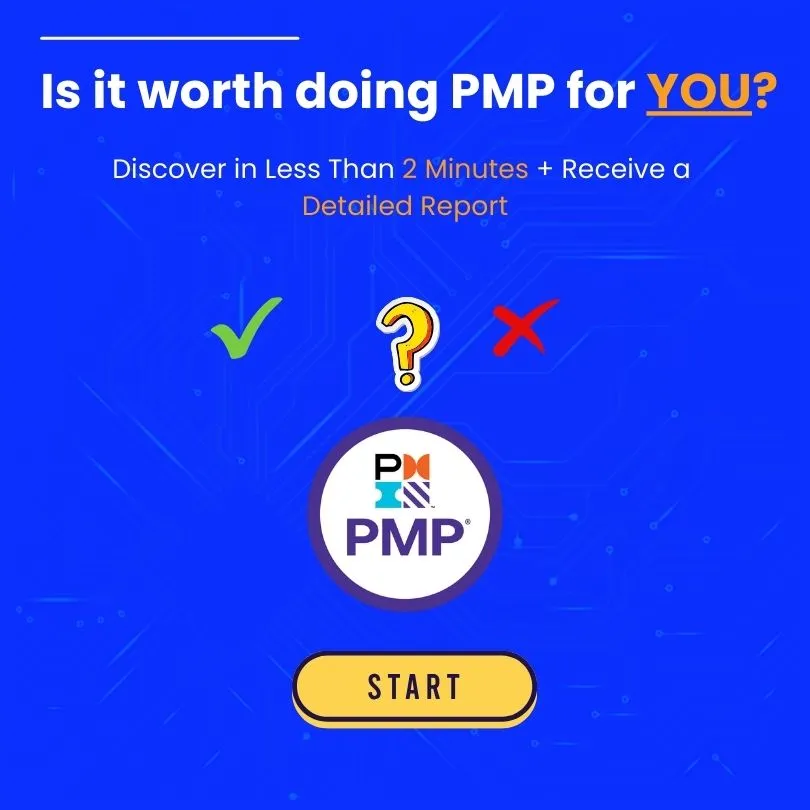In this blog post, We will understand about 10 drawbacks of PMP.
PMP certification is a globally recognized and highly ranked credential for the Project Management professionals in various industries with the number of PMPs around a million.
PMP is acclaimed by global leaders in project management, designed and developed by PMI, making it the most sought-after project management certification.
Please understand that this is the alternative view based on my experience of being PMP certified for over a decade. However, no doubt that PMP is the gold standard of Project Management, and this article gives you a different perspective.
1. Preparation Time
The first con is the amount of effort you need to invest in preparing for the exam. The PMP exam is based on PMBOK and requires a lot of mugging up, your real-world experience can help a bit but still, you need to memorize a lot of information to pass the MCQ which will require a good amount of time to prepare.
For clearing PMP, one may spend several weeks to several months preparing. As a result, many people sacrifice family time, and some take the preparation to work, impacting both personal and professional life.
So, If you can’t commit to the hard work and spend time for preparation, it’s better to avoid it.
2. Cost
The PMP exam is costly, and you need to spend a good amount of money on the certification exam, training, books, and other materials. Let’s look at the cost in detail:
First is the certification exam cost. Taking the PMP exam by joining a PMI membership is cheaper by $11; no wonder everyone does that, but it costs $544, including the PMP® Certification Exam fee of $405 with a PMI® Membership of $139 for a year.
Next is the training cost, which usually varies depending on the location from which you are. Attending the training will cut your pocket between $200 to $3,500 depending on the location and the type of training you choose.
Next are the book’s and exam simulation costs, which will cost you around $100 to $200, depending on your chosen content.
So the total cost you spend for the PMP exam preparation and certification comes in between $1,000 to $4,000.
There are some other costs that people overlook.
The PMP exam rescheduling fee is 70$, So be sure when you want to take the exam, Else you will end up spending 70 additional dollars.
PMI charges a re-examination fee for retakes which is $275 So you need to be well prepared or else be ready to shell out more money
Many people take several days off from their work to prepare for the exam, so leaves are an indirect cost that you can add up to the overall cost.
Suppose your company financially supports this type of professional development and is paying the bill and giving you time to study and take the exam. In that case, my advice is to consider it.
But if you are sponsoring yourself, you need to be prepared to spend such a hefty amount for a certification.
Gururo, a PMI Authorized Training Partner (#5718), is excited to offer you our comprehensive PMP® Certification Training Course with our PMP Training Plus Pack:
-
PMP Training Course
-
PMP Exam Simulator 2024
-
PMP Application Service
Get PMP certified in just 5 weeks:
-
📚 35 Contact Hours (PDUs)
-
🎥 40+ hours of on-demand videos
-
📝 14+ simulations with 3000+ questions, aligned with the 2024 PMP Exam format
-
🔍Comprehensive explanations for each question and option
-
🗓️ 365 days of unrestricted access
-
✅ Complete PMP application in 1 day, expert-reviewed with no risk of rejection
-
💬 Connect directly with your mentor
-
🏆 Course Completion Certificate
-
📖 Last-Minute Lecture Notes Recap
-
🔄 Unlimited attempts at quizzes and simulations
-
📊 Progress Tracking & Analytics
-
📂 Project Management Templates
-
🕒 24/7 support
3. PMP credential Maintenance
Some of the people preparing for the exam might think that after doing such hard work and spending a bomb on a certification, you are done, and this was a one-time activity. You hold the certification forever, but the reality is far away.
You need to renew your certification every 3 years from the date you clear the exam.
Renewing the certificate cost’s between $60 to $150, depending on the PMI membership. You also need to accumulate PDUs. For beginners, consider 1 PDU to be equal to 1 hour.
So, Every 3 years, 60 PDUs are required to be accumulated, and you can gain PDUs by self-learning, attending training from PMI partner institutes, and other ways.
So, you need to spend money and effort to maintain your credentials which is a regular exercise.
4. Application and approval process
The prerequisites for taking the exam are pretty hefty and will only be able to be met by those new in their careers. Filling out the application is intense and can take 10-15 hours in and of itself.
You’ll need to scout your work history and memory bank to provide the level of detail required for the application. Don’t cut corners here, as applications are randomly audited.
The application process is quite tedious and requires significant effort in case if your application is randomly selected for audit. If you are selected for audit, it may take several weeks to even months in some cases, and you may lose the preparation pace.
So if this bothers you a lot, don’t go for PMP.
5. Doesn't guarantee a job
If you think that once you clear the PMP exam, Organisations will stand in a queue to hire you, you are in for a surprise.
So, Passing doesn’t guarantee a job, and only a few companies will give a higher weightage to PMP vs. others.
So if you are Someone who thinks that PMP will supremely empower you to get a job, that’s not going to happen.
6. No guarantee of Salary hikes or Promotion
If you think clearing PMP will make you eligible for a hike or promotion, there is no certainty about it. While few organizations may consider it but others don’t see it as a direct benefit to the company and is considered as personal development only.
7. Interviews
Some PMP professionals have encountered strange interviews where the panel has asked basic definition level PMBOK-based questions. How many of you remember specifics that you have learned at the time of PMP preparation.
So you need to revise PMBOK if you are anticipating any interviewer may go into PMBOK details.
8. Doesn’t guarantee that anyone will be able to play the Project Manager role
Passing doesn’t guarantee that you are a great project manager out there and doesn’t really display that you have actual knowledge. PMP can’t transform a bad project manager into a good one or a good project manager into a better project manager.
Holding a certificate should not obscure that real-life experience is far more valuable than any certificate and cannot be replaced by it. A proper project management professional is a person with excellent experience and a track record of successfully implementing projects, not someone with a certificate.
9. Industry relevance
What kind of industry do you currently work in, and where do you want to work in the future?
If you’re working at new-age startups and tech organizations, don’t bother. The methodology that the PMP teaches isn’t relevant in these organizations, and the PMP certification would likely not benefit you in this environment.
I recommend an Agile-related certification instead of PMP for newer and smaller tech companies, as this methodology is more prevalent in tech and software development.
Also, It does not work well in situations With a high level of uncertainty or Where an emphasis on creativity and innovation may be more important than an emphasis on planning and control to achieve predictability.
10. And the last drawback is that PMP is Not the only standard and Framework
PMP will teach you a Bookish standard and many other frameworks are available. Europe and UK prefer PRINCE 2 over PMP whereas, various countries don’t have a preference.
PMP or any other certification will take a back seat in front of real-world experience for any organization. If you are from other countries that prefer prince2 or CompTIA over PMP then better avoid PMP.
In today’s world, A project manager needs to be capable of using a broader range of methodologies to fit the nature of the project rather than Force-fitting all projects to a traditional plan-driven approach.
Conclusion : Is PMP Worth It In 2024
PMBOK and PMP elements are helpful as a foundation for any kind of project management.
However, the depth of study and knowledge required for PMP certification tends to “brainwash” people into thinking that PMP/PMBOK is the only way to do project management and that is not the case.
Someone who only wants a foundation of knowledge in traditional plan-driven project management principles probably doesn’t need that depth of knowledge.
The full PMP certification is still appropriate for any project managers who plan to specialize in traditional plan-driven project management. However, that depth of knowledge in plan-driven project management should be optional for someone who wants to develop an integrated Agile Project Management approach.









